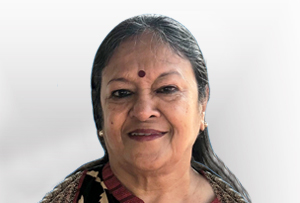As the war continues to rage in Ukraine, with no end in sight, and lives are lost on both sides, and violence continues to devastate the country, violence and conflict situations around the world have once again come into focus. Bringing peace into the world is one of Rotary’s essential credos and the organisation’s vital involvement in the United Nations, right from the signing of its charter, is well known. In this context, the cover story of this issue, which puts the spotlight on Rotarians from Mumbai, reaching out to villagers in Kupwara, so close to the Line of Control between India and Pakistan, where trouble or flashpoints can happen any moment, gains significance.

Just imagine the magic that a bunch of Rotarians from Mumbai created, when on a request from a senior Indian Army officer, a small group of Rotarians led by DGE Arun Bhargava, RI District 3141, visited a few remote villages in Kupwara, barely 8–10km from the LoC. They interacted with the villagers on their needs such as basic education, healthcare, and women’s empowerment through skills and adequate training. It happened to be the occasion of Eid, and the Rotarians led by their DGE even performed namaz with the local imam, and on the spot approved their request for two motorcycle ambulances costing `8 lakh! The imam and the panchayat chief were both stunned and overjoyed at this gesture and marvelled at the fact that “Mumbai Rotarians have come all the way to Kashmir to give us an Eid ka tohfa”.
As the visiting Rotarians point out, the villagers, most of whom are alienated from India, felt a sense of belonging to India, and the Rotarians and the villagers together sang our national anthem Jana, gana, mana, “some of them perhaps for the first time in their lives!”
But this is just the beginning; do read our cover story to find out more about how Rotarians will be sponsoring the education of children in the Army Goodwill Schools; getting midwives all the way from Kashmir to Mumbai to train them in private hospitals so that maternal mortality numbers, which are very high in Kashmir, start falling. This is service at its best.
In this initiative too, women’s empowerment will take a pride of place, and the skilling of women undertaken by the Army to train women in handicrafts, food products etc, and its efforts to provide them a market linkage will further strengthen the Indian Army’s hand in the initiative launched by the Indian government to “win hearts and minds” in Kashmir.
There are no quick fix or easy solutions to longstanding problems; they just have to be chipped away slowly, but surely. The commendable aspect in this whole initiative is that when the Indian Army needed a civilian partner from the voluntary sector to help it, its top officers sought the help of Rotary.
That’s surely a salute to the Rotary pin that you wear on your lapel or the saree!
Rasheeda Bhagat





